after some further research...
There is an "official solution" by Matlab:
just download the linked m-file
It shows that my idea was not that bad ;)
and for the record, my idea:
I think it's doable quite easily. I cannot present you some code yet, but I'll see what I can do. My idea is the following:
- programatically create a new model
- Add a
Constant source block and a Terminator
- add the Block you want to get to know the direct feedthrough ability in the middle
add_lines- run the simulation and log the states, which will give you the
xout variable in the workspace.
- If there is direct feedthrough the vector is empty, otherwise not.
- probably you need to include some
try/catch error catching for special cases
This way you can analyse a block for direct feedthrough by just migrating it to another model, without compiling your actual main model. It's not the fastest solution, but I can not imagine that performance matters that much for you.
Here we go, this script works fine for my examples:
function feedthrough = hasfeedthrough( input )
% get block path
blockinfo = find_system('simulink','Name',input);
blockpath = blockinfo{1};
% create new system
new_system('feed');
open_system('feed');
% add test model elements
src = add_block('simulink/Sources/Constant','feed/Constant');
src_ports = get_param(src,'PortHandles');
src_out = src_ports.Outport;
dest = add_block('simulink/Sinks/To Workspace','feed/simout');
dest_ports = get_param(dest,'PortHandles');
dest_in = dest_ports.Inport;
test = add_block(blockpath,'feed/test');
test_ports = get_param(test,'PortHandles');
test_in = test_ports.Inport;
test_out = test_ports.Outport;
add_line('feed',src_out,test_in);
add_line('feed',test_out,dest_in);
% setup simulation
set_param('feed','StopTime','0.1');
set_param('feed','Solver','ode3');
set_param('feed','FixedStep','0.05');
set_param('feed','SaveState','on');
% run simulation and get states
sim('feed');
% if condition for blocks like state space
feedthrough = isempty(xout);
if ~feedthrough
a = simout.data;
if ~any(a == xout);
feedthrough = ~feedthrough;
end
end
delete system
close_system('feed',1)
delete('feed');
end
When enter for example 'Gain' it will return 1, when you enter 'Integrator' it will return 0.
Execution time on my ancient machine is 1.3sec, not that bad.
Things you probably still have to do:
- add another parameter, to define whether the block is continuous or discrete time and set the solver accordingly.
- test some "extraordinary" blocks, maybe it's not working for everything. Also I haven implemented anything which could deal with logic, but actually the constant is
1 so it should work as well.
Just try out everything, at least it's a good base for you to work on.
A famous exception is the StateSpace Block which can have direct feedthrough AND states. But there are not sooo much standard blocks with this "behaviour". If you also have to deal with third party blocks you could get into some trouble, I have to admit that.
possible solution for the state space: if one compares xout with yout than one can find another indicator for direct feedthrough: if there is, the vectors are not equal. If so, than they are equal. Just an example, but I can imagine that it is possible to find more general ways to test things like that.
besides the added simout block above one needs the condition:
% if condition for blocks like state space
feedthrough = isempty(xout);
if ~feedthrough
a = simout.data;
if ~any(a == xout);
feedthrough = ~feedthrough;
end
end

